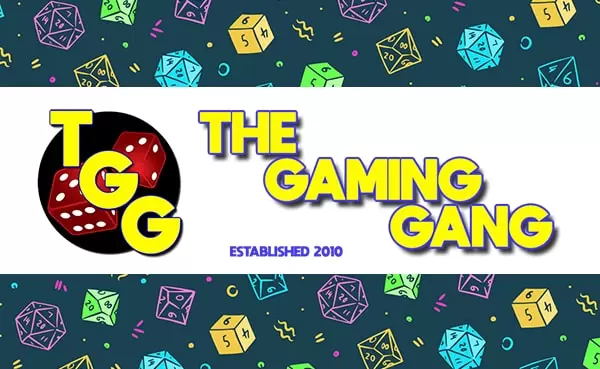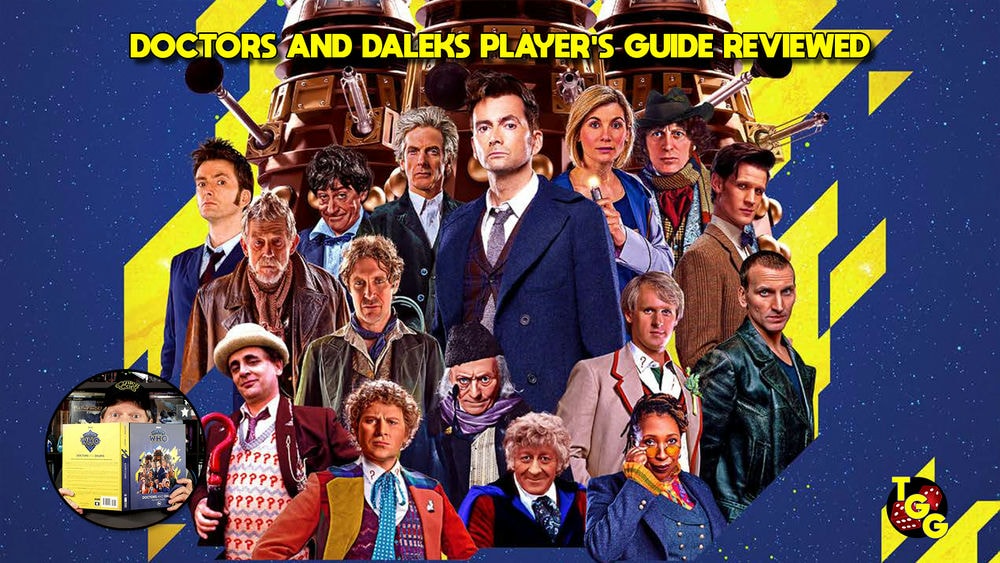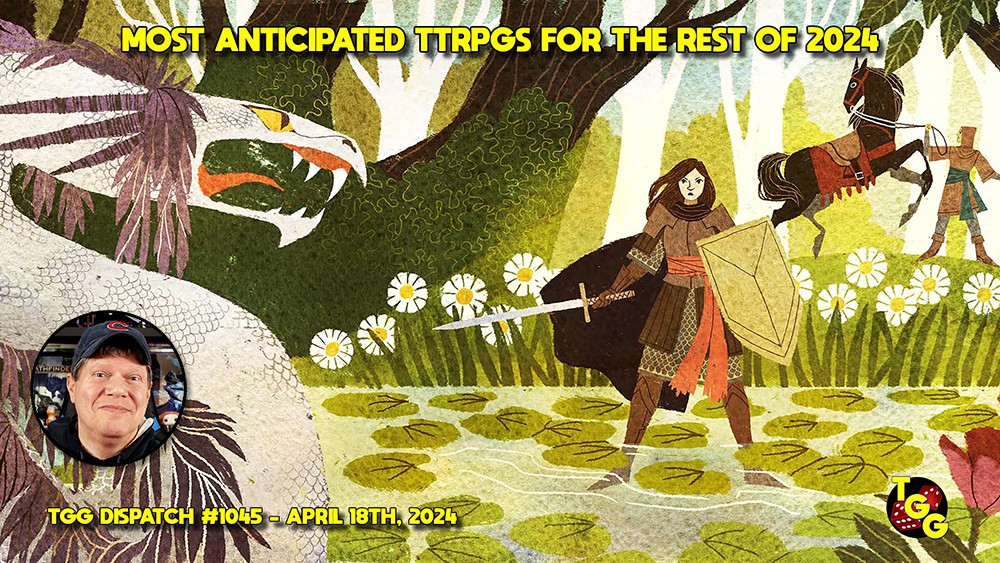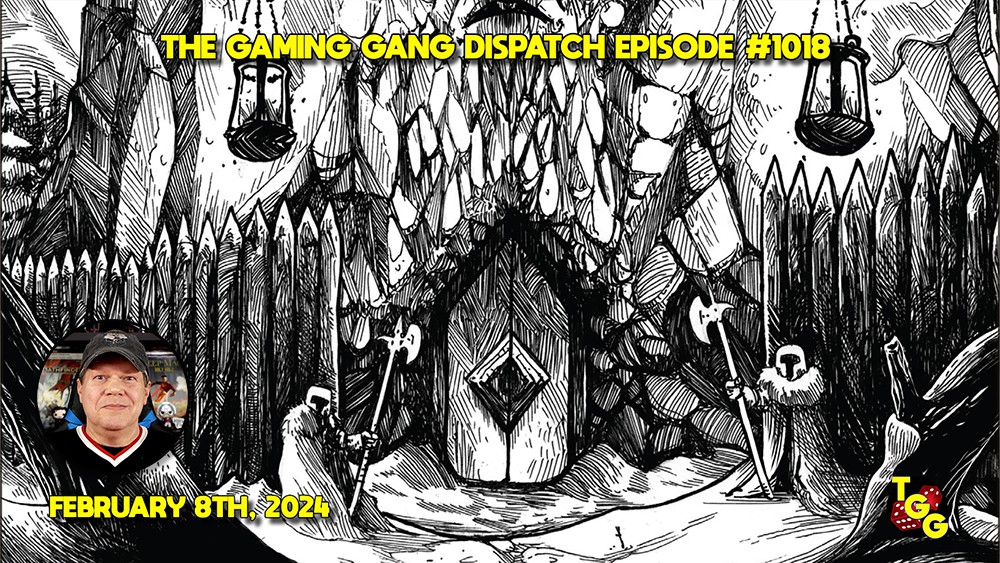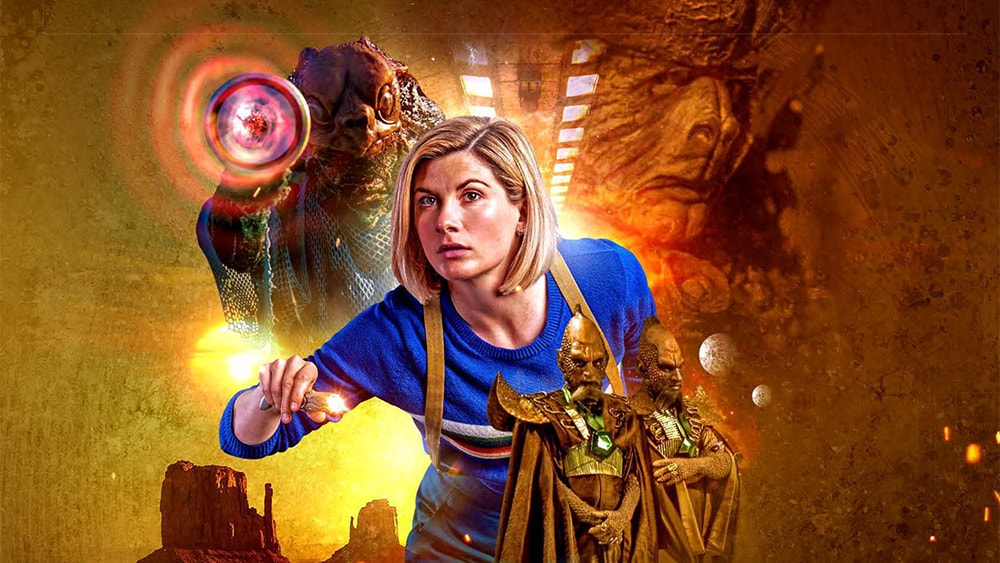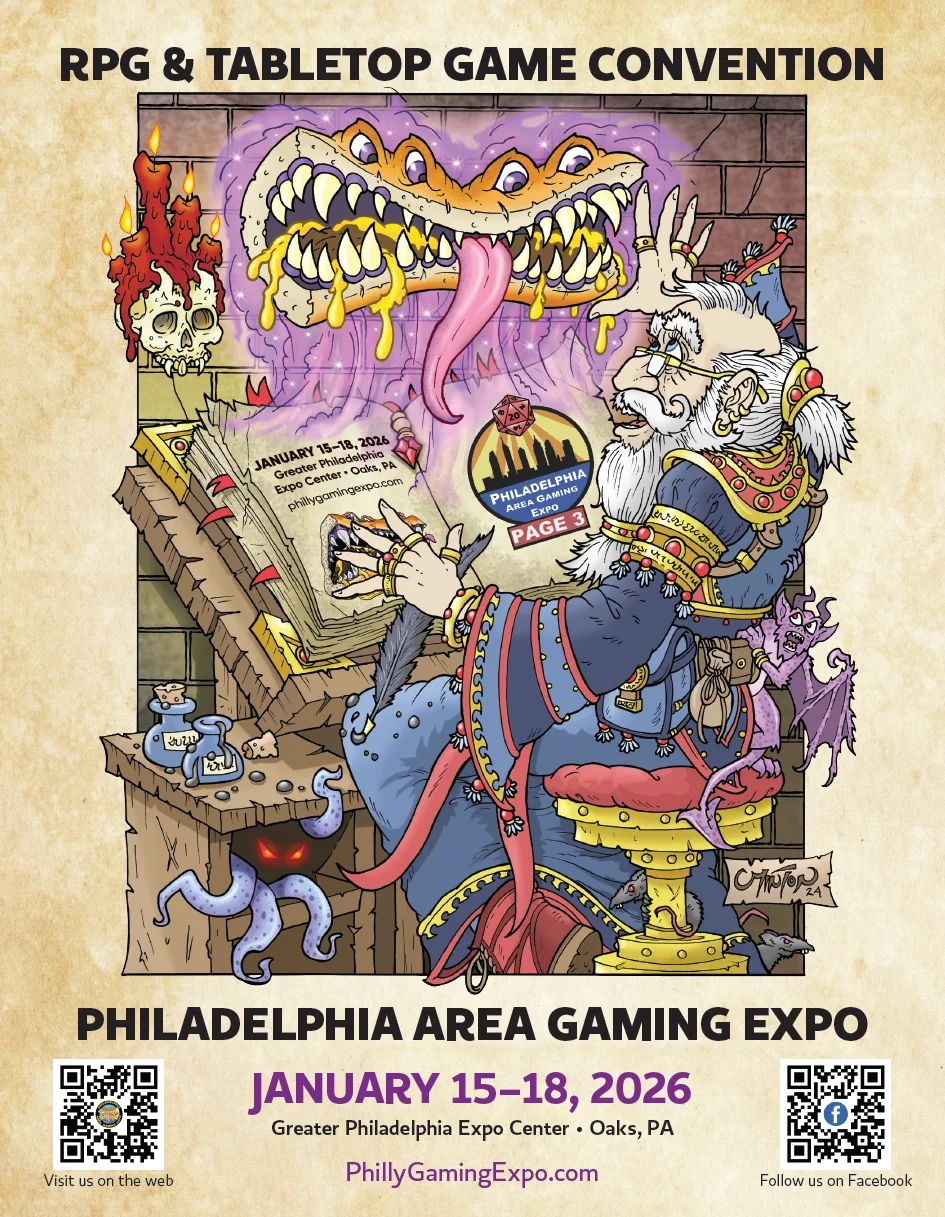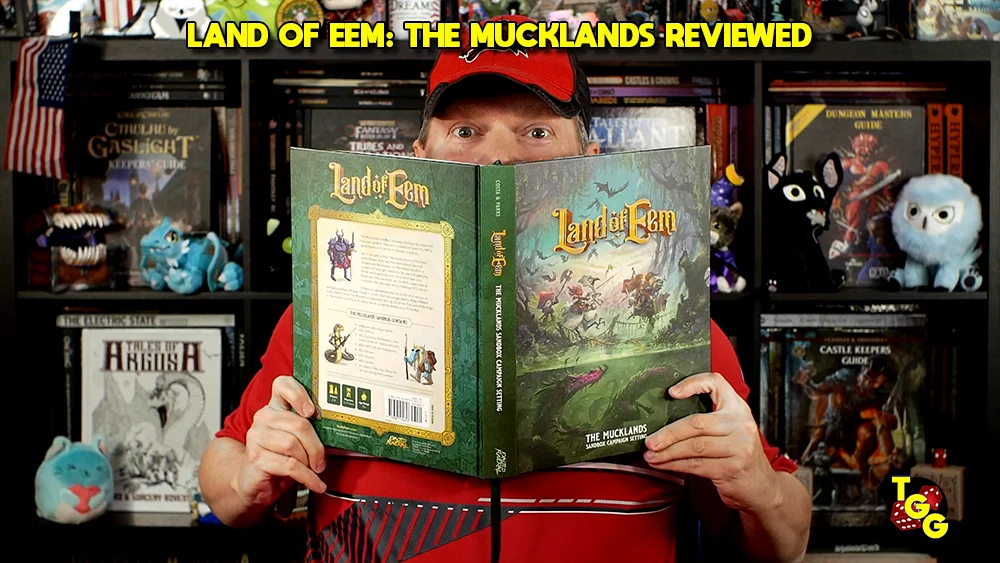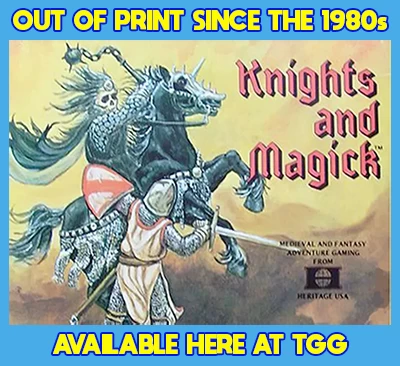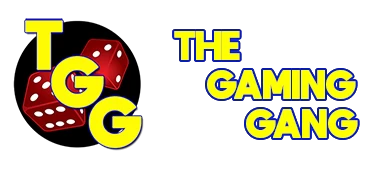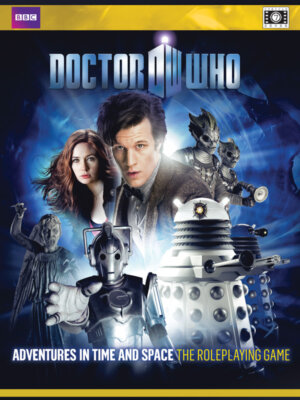
Publisher: Cubicle 7 Studios
Author: David F Chapman
Year: 2012
Genre: Doctor Who Roleplaying Game
Players: two or more players
Ages: 12+
Pages: 297 pages in total
Retail Price: $59.99 boxed set with softcover book
As the worldwide phenomenon of Doctor Who continues, Cubicle 7 Studio has updated their Doctor Who: Adventures in Time and Space Roleplaying to the eleventh doctor currently portrayed by Matt Smith. Since TGG wasn’t around when the game originally launched in 2009 and the new edition arrived on store shelves a couple months back I thought it would be a good time to tackle the role playing game before the current season of Doctor Who comes to a close.
I’ll have to point out I’ve been a fan of Doctor Who since high school when Elliott and I were introduced to the fourth doctor, played by Tom Baker, on our local PBS station. In fact I still remember the night we watched Baker’s last episode as he fell to his doom, a victim of the Master’s latest scheme, and began to regenerate I can tell you there was much swearing and head scratching as we didn’t know time lords had the ability to regenerate… I even owned the FAFSA Doctor Who RPG when it came out in 1985 and happen to have every episode of the series, or at least those that have survived, since it premiered in 1964.

The first thing I’ll mention is at $59.99 for the boxed set edition strikes me as a little on the high end of the scale. Included in the box are three books, six clear six sided dice, character sheets – both pre-regenerated (the four main protagonists of the current series of the Doctor and his companions Amy Pond, Rory Williams, and River Song) as well as archetype characters or NPCs, gadget cards, and tokens to use for handing out Story Points. Outside of the books, and possibly dice, the rest of the contents strike me more as fluff than anything required to effectively play the game. Yet, it’s obvious Doctor Who: Adventures in Time and Space is clearly designed for the novice role player so I can understand the inclusion of these nonessentials.
The system itself is based on d6 and in the tradition of introductory RPGs can be considered firmly in the rules light camp of games. Characters consist of attributes, traits, and skills and character creation is a relatively quick and painless process although the included skills list is rather limited (twelve in all) but the traits seem to help even the field. The attributes are Awareness, Coordination, Ingenuity, Presence, Resolve, and Strength rated on a scale of one to six. Traits are broken down into “good” (Boffin or Lucky as examples), “bad” (say Cowardly or Outcast), and “special” (being an Alien or having Telepathy); taking a “bad” trait provides you with extra points for character creation. Skills are very broad such as Marksman or Craft and can be specialized but still only amount to a dozen choices.
Thankfully, players aren’t forced to utilize the Doctor at all in their adventures and plenty of options are included for campaigns where the characters are traveling through time without neigh a Time Lord in sight. That said, these are simply options and the bulk of each book assumes you’re going to play some form of the current Doctor and his companions.
Action resolution is straightforward as you’ll have a target number your character will look to better and to do so you add together the appropriate attribute and skill together, include any bonus or penalty from traits, and then add the result of a 2d6 roll. The aim here is to roll high and the higher the better because the amount above or below the target number your combined score is determines how well you succeed or spectacularly you fail. Success and failure is divided into three levels of quality and easy for the GM to process. Simply enough you’re answering the question if the roll was a success and the answers can be Yes and…, Yes…, or Yes but… The exact opposite is true for failure so you simply replace Yes with No in the same way.
As we find in many rules light systems these days there are also Story Points which players earn and can cash in to bend the rules of the game from time to time. Effectively good roleplaying and being a good person earns you points to spend while being a bad guy will cost you Story Points. It’s interesting the good guy approach will add to your Point total as this is well within the setting of the show; the Doctor travels with good people who are looking to make a difference.

One aspect of Doctor Who: Adventures in Time and Space which is in true form to the nearly fifty years of the series is the focus on thinking your way out of jams as opposed to constantly battling the baddies. Combat isn’t completely ignored but there’s even a section entitled “Things to do besides fighting when confronting bad people with guns” so you know you’re looking at a system where you may play a few sessions before you might even find an alien weapon in your hands. This is a tone which is certainly not in the norm of roleplaying games but surely is in tone with Doctor Who. Even though the Third Doctor, portrayed by John Pertwee, was a bit of a badass even he relied on his brains long before he’d resort to brawn. I like the approach and you’ll be hard pressed to find any hard stat numbers for guns and things that go boom.
The fact is you’ll be hard pressed to find many stone cold stats on a great many things but that’s the point and tone of the game. We aren’t talking about a system which is looking to strictly simulate anything – be it fictional or historical. The gist of the game is to create a story and if some sort of situation of resistance or conflict arises we’ll just roll some dice and move along with the story. After all we are talking about a game based on a show that is effectively a program for kids (even big kids like us) where a nearly immortal alien travels through time and space in a blue police box which happens to be much bigger inside than out. Sure, that alien runs into loads of bad guys who normally have nothing less than subjugating or destroying the universe on their agenda on a weekly basis but it would be silly to expect an overly complex system of rules to tackle the television show.

Doctor Who: Adventures in Time and Space is aimed toward new gamers and, more than likely, younger players. It’s well written with the emphasis on having fun and telling Doctor Who stories and is loaded with tons of photography from the series. I have to point out, this is an especially attractive system for kids and parents who may have issues (for whatever reason) with what could be considered the traditional sword and sorcery RPGs with more of a supernatural or combat focus. The all-encompassing theme with Doctor Who: Adventures in Time and Space is nonviolence, thinking your way out of trouble, and always being a good person while trying to do the right thing.
After all that’s been the overall message of Doctor Who for nearly fifty years.
[rwp-review id=”0″]
